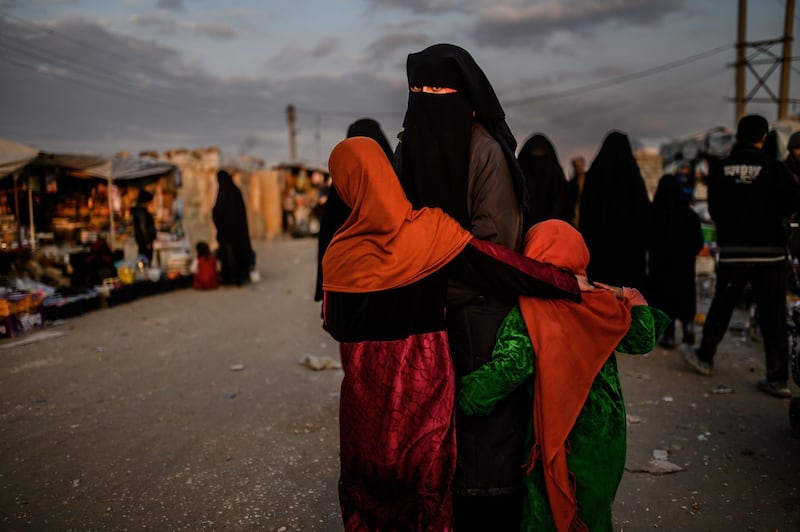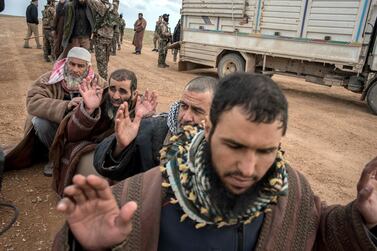The Red Cross' United Nations observer says the weak and fragile services at the Al Hol camp in northeastern Syria are on "the brink of collapse" because of a flood of civilians and some ISIS militants who have left the extremist group's last besieged enclave in Syria.
Robert Mardini of the International Committee for the Red Cross said in New York on Monday that the population in the camp has risen from 34,000 at the beginning of December to 45,000 in March. He said several thousand mainly women and children arrive daily and there is “no end in sight”.
Mr Mardini says those coming out of the ISIS pocket are “sick, injured, tired, afraid” and the situation at the camp is “overwhelming”.
He also said the international Red Cross is ready to help with any repatriations of ISIS fighters and their families, provided agreements are negotiated with their home countries.
Mr Mardini called this “one of the most complex issues, not only from a humanitarian sense but also from whether countries want their nationals to return or not”.
In a statement released on Friday, the United Nations cited reports that more than 84 people, two thirds of them young children under five years of age, have died since December on their way to Al Hol camp after fleeing the extremist group in Syria's Deir Ezzor province.
"Many of the arrivals are exhausted, hungry and sick," according to Jens Laerke, spokesman of the UN Office for the Coordination of Humanitarian Affairs, at a news briefing in Geneva.
Among them was the wife of French ISIS fighter Jean-Michel Clain, Dorothee Maquere.
She told Agence France-Presse on Tuesday that her husband was killed last month in a mortar attack, adding that a coalition air strike also killed her brother in law, Fabien Clain. The latter was known for voicing an audio recording claiming responsibility for the November 2015 attacks in Paris, when ISIS claimed the murder of 129 people in coordinated attacks at restaurants and bars around the French capital.
Maquere spoke to AFP at a screening centre run by the Syrian Democratic Forces (SDF) after exiting the tiny enclave in Baghouz. She was accompanied by her five remaining children – three of them were killed in bombardments.
Late on Monday, SDF spokesman Mustafa Bali tweeted that around 3,000 people, including militants, had evacuated the last area through a humanitarian corridor set up for anyone who wished to surrender.
It's unclear how many ISIS militants and civilians remain inside, but the number is likely in the hundreds.
The mass evacuation of ISIS fighters and their families comes as the US-backed Kurdish-Arab force waging the ground offensive near liberating the group's final enclave of Baghouz. The pocket has been reduced to a 700 metre square area hosting a collection of tents and hamlets.
The capture of the last enclave still held by ISIS fighters would mark the end of a devastating four-year global campaign to end the extremist group's hold on territory in Syria and Iraq — which at the height of the group's power in 2014 spanned nearly a third of both Iraq and Syria.
It would allow US President Donald Trump to begin withdrawing the estimated 2,000 US troops from Syria, as he declared in December he would do.







